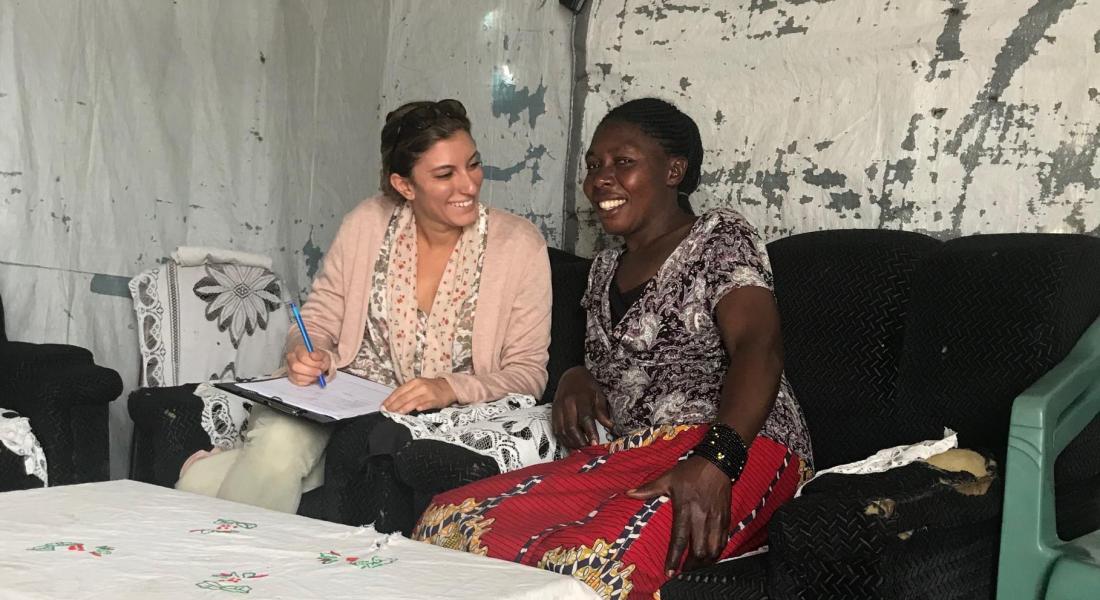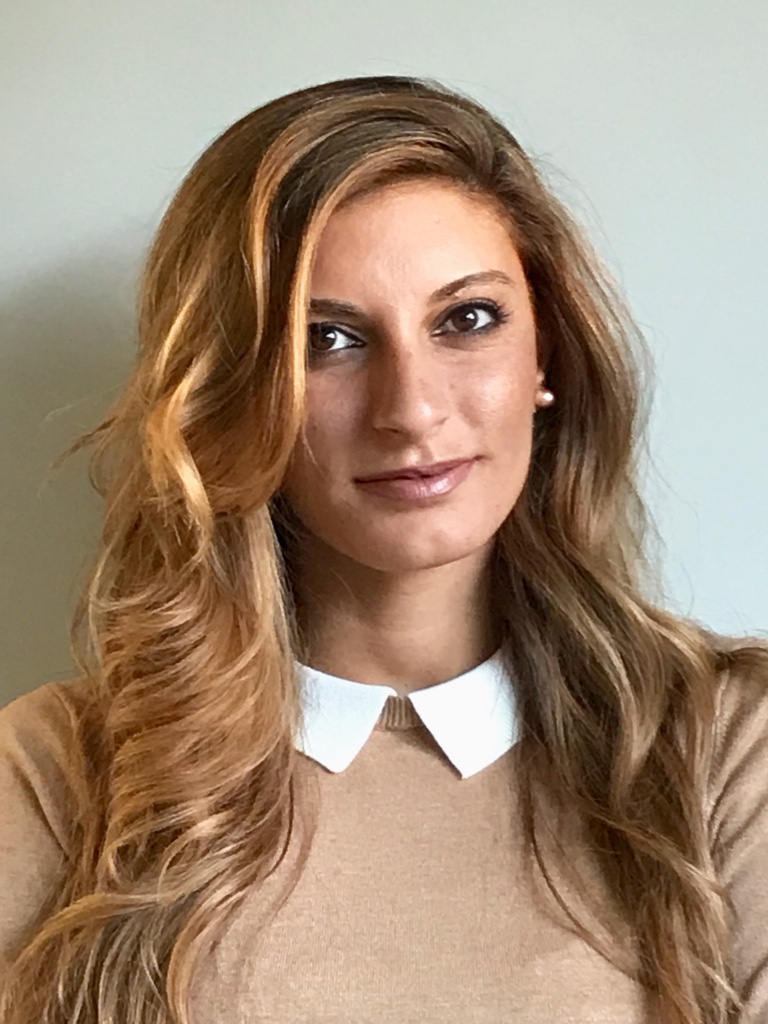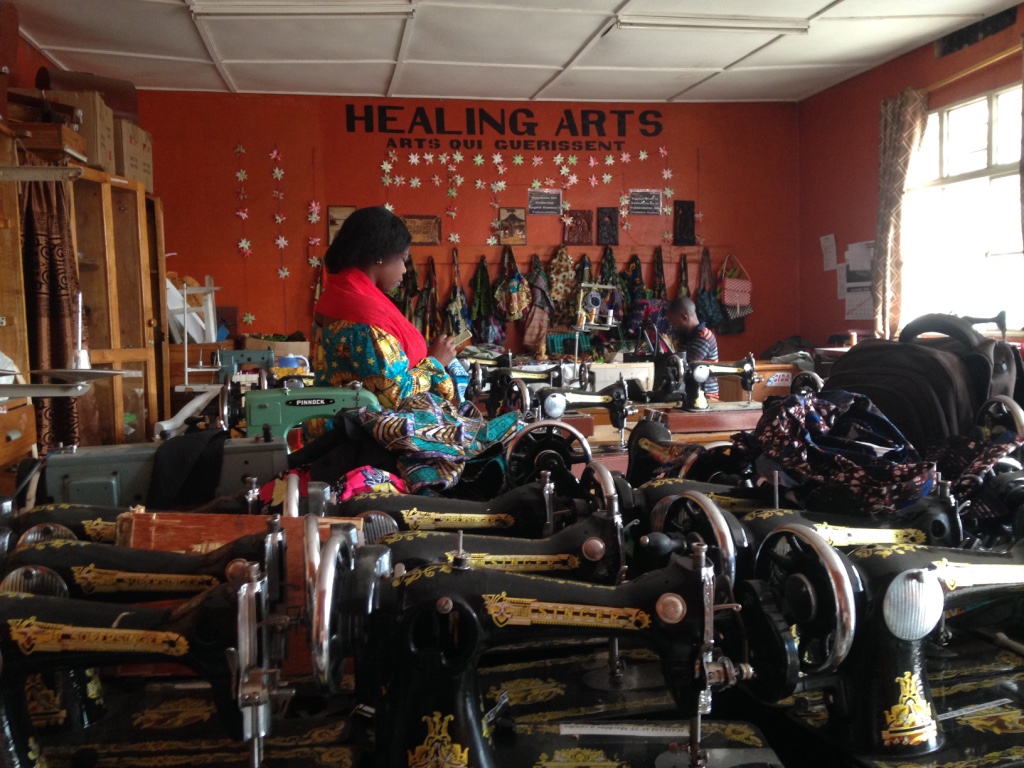
Kellogg Institute Doctoral Student Affiliate Maryam Rokhideh, a current University of Notre Dame doctoral candidate in peace studies and anthropology at the Kroc Institute for International Peace Studies, has been named a 2020 Woodrow Wilson Dissertation Fellow in Women’s Studies. Ten highly-selective fellowships are awarded annually to humanities and social science PhD candidates whose work addresses women’s and gender issues in interdisciplinary and original ways.
 “Maryam is an emerging leader in the field of women's work and economic activity as stabilizing forces in areas of long-term conflict,” said Kellogg Faculty Fellow Catherine Bolten, associate professor of anthropology and peace studies and Kroc Institute director of doctoral studies. “She is the first student in the Kroc Institute to receive this award, which is a testament to her dedication to revealing how women's activities are foundational to recovery from war.”
“Maryam is an emerging leader in the field of women's work and economic activity as stabilizing forces in areas of long-term conflict,” said Kellogg Faculty Fellow Catherine Bolten, associate professor of anthropology and peace studies and Kroc Institute director of doctoral studies. “She is the first student in the Kroc Institute to receive this award, which is a testament to her dedication to revealing how women's activities are foundational to recovery from war.”
Rokhideh has spent 20 months living and researching on the Goma-Gisenyi border between the Democratic Republic of Congo (DRC) and Rwanda, in part through a Kellogg Institute Graduate Research Grant. She has conducted multi-sited ethnographic research, interviews, surveys, geo-spatial analysis, and social network analysis to study cross-border movements and exchange between DRC and Rwanda. Each day, thousands of people, the majority of them female traders, cross this border, the most active in Africa, by foot or in vehicles to sell goods, study, and access resources and services that are not readily available to them.
Her dissertation, titled “‘Everything is on My Back’: Women, Work, and Welfare on the Congo-Rwanda Border,” examines the ways in which women who live in border communities leverage their networks to achieve socio-economic mobility and improve their quality of life in an insecure context where access to public services is limited. Prior to receiving the Wilson Fellowship, Maryam was awarded research grants and fellowships from Fulbright, the USAID Global Development Fellowship through the Pulte Institute for Global Development, and Notre Dame’s Institute for Scholarship in the Liberal Arts, in addition to her Kellogg grant.
Rokhideh’s research on the Goma-Gisenyi border has led her to focus particularly on finding concrete and evidence-based strategies to mitigate fragility risks like high unemployment and regional conflict.
“As a vehicle for job creation and regional integration, transnational trade networks can play a critical role in facilitating economic growth, providing food security, and even promoting social cohesion in fragile and conflict-affected areas,” Maryam says.
Her research provides insights on how border regions can function as sites of bridge-building and mutual interdependence.
“Everyone depends on the border. It’s not just one side that benefits from the goods and services of the other,” she said. “Transnational networks provide services and goods that communities don’t have access to in their own states. It’s a new way of looking at borders that can shape current global discussions on migration, border disputes, and service provision. We see similar dynamics between US-Mexico or Haiti-Dominican Republic, for example.This mutual interdependence can help strengthen social and economic ties not only within countries but also across borders.”
The DRC used to be considered the “breadbasket” of the region due to its robust agricultural production. However, because of insecurity arising from ongoing conflicts, agricultural food systems have been disrupted and the country has increasingly come to depend on food grown in Rwanda and transported across the border. In return, people living in Gisenyi, Rwanda, heavily rely on the markets and businesses in Goma to achieve a higher quality of life.
 Since her pilot research, Rokhideh decided to focus in particular on the women whose work is essential to creating a thriving cross-border economy and social safety nets in the DRC and Rwanda. In fact, studies suggest that women in the African Great Lakes region are responsible for approximately 85 percent of cross-border trade.
Since her pilot research, Rokhideh decided to focus in particular on the women whose work is essential to creating a thriving cross-border economy and social safety nets in the DRC and Rwanda. In fact, studies suggest that women in the African Great Lakes region are responsible for approximately 85 percent of cross-border trade.
“It’s incredible to see how women have become primary earners, lifting themselves out of cycles of vulnerability,” said Rokhideh. “They fund their children’s education and have become a force for change and wellbeing for their families and local communities by producing and transporting goods across the border, creating social safety nets, and building cross-border networks of trust in a highly divisive environment.”
Rokhideh tells the story of Mama Komera*, a woman from Gisenyi whose husband was out of work. To provide for her family, Mama Komera began selling bananas. In order to make money, she would purchase bananas in Gisenyi and transport them to Goma to be sold at a local market. After a few years of building this business and saving, Mama Komera decided to buy land and start a banana farm on her property. She now trains and supplies other women, equipping them to support their families through banana sales as well.
Similarly, in Goma, Rokhideh met Mama Amani*, who started a business importing and selling fruits and vegetables, and started her own savings group association to serve as a network that could provide credit in lieu of formal banks. Through these informal savings groups Mama Amani was able to buy a specialty bike and cart for her husband, enabling him to earn money transporting goods.
Rokhideh wants to highlight stories like these that illustrate women’s roles as active agents in fostering economic recovery and post-conflict social change in the Great Lakes region.
“During times of war and insecurity, women are often characterized as victims, which they are, but they are also breadwinners, fighters, and leaders. I want to do justice to both the struggles women experience as well as the ways in which they strategize and even thrive despite structural forces that keep them down,” Rokhideh said. “In this way, I hope to give a faithful account of women’s lives and experiences in conflict contexts.”
Rokhideh credits her interdisciplinary training in both anthropology and peace studies with giving her the tools to highlight the complexity of her research.
“Anthropological tools have allowed me to accompany women in their everyday lives across the border to understand how they create networks of support for themselves in the absence of security and welfare systems,” said Rokhideh. “And peace studies allows me to zoom out and examine the policy implications of transnational networks as potential pathways to peace and development in fragile contexts.”
The PhD Program in Peace Studies is administered by the University of Notre Dame’s Kroc Institute for International Peace Studies, part of the Keough School of Global Affairs. The program is a partnership with the Departments of Anthropology, History, Political Science, Sociology, Psychology, and Theology.
*Pseudonyms used to protect the privacy of these individuals





